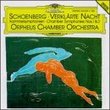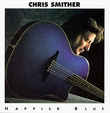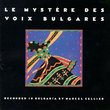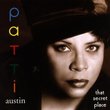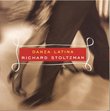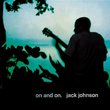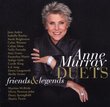| All Artists: Olivier Messiaen, Tashi, Peter Serkin Title: Olivier Messiaen: Quartet for the End of Time Members Wishing: 1 Total Copies: 0 Label: RCA Release Date: 8/11/1989 Genre: Classical Styles: Chamber Music, Historical Periods, Classical (c.1770-1830), Modern, 20th, & 21st Century Number of Discs: 1 SwapaCD Credits: 1 UPC: 078635783520 |
Search - Olivier Messiaen, Tashi, Peter Serkin :: Olivier Messiaen: Quartet for the End of Time
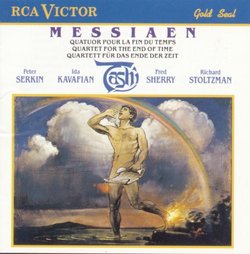 | Olivier Messiaen, Tashi, Peter Serkin Olivier Messiaen: Quartet for the End of Time Genre: Classical
No Description Available No Track Information Available Media Type: CD Artist: MESSIAEN,O. Title: QT FOR END OF TIME Street Release Date: 12/06/1988 |
Larger Image |
CD DetailsSynopsis
Product Description No Description Available No Track Information Available Media Type: CD Artist: MESSIAEN,O. Title: QT FOR END OF TIME Street Release Date: 12/06/1988 Similarly Requested CDs
|
CD Reviews"the overwhelming grandeur..." happydogpotatohead | New Orleans, LA USA | 07/06/2000 (5 out of 5 stars) "Messaien wrote "Quartet for the End of Time" in a Nazi prison camp. This work was first performed by half-starved prisoners on broken instruments, to an audience of arrogant Nazi prison camp guards and officials, and the people they had enslaved in the name of the Third Reich.The work that Messaien composed in the face of this titanic evil was not a work of anger or bitterness. It was not a work of resignation to an inevitable fate or a hymn to depression. Messaien chose to represent, musically, the end of all things, as described in the Book of Revelations in the Bible. In its austerity and its serenity, the Quartet informs the Nazis: You are in control now, in this place, at this time, but your control is not absolute. Your Reich will not last 1000 years. You may attempt whatever you like and kill millions, but your time will be done, and you will be banished to nothingness.Messaien hid his message behind the context of the Book of Revelations, which he interpreted not in the fashion of modern day "born again" fundamentalists, but in a mystical way, as a spiritual event that had resonance in his time. What was Hitler but an Anti-Christ, a beast attempting to set himself up as a God? Messaien called upon the power of the Word and set it to music, a music that was intended to work as a memory of redemption, a reminder that evil cannot, and will not, triumph over good no matter how profound the evil may be. It is also the sound of a man calling on his God to avenge the evil that has overtaken the world. If the Nazis had truly known what Messaien was telling them, they would have shot him. Musically, Messaien was forced to write the Quartet for the instruments he had available to him. He also had to take into account that the instruments were half-broken; for example, the piano that was used in the original performance was missing strings and therefore there were notes that it could not play. Messaien wrote with all this in mind, and with his subject matter in mind.The Quartet is definitely a 20th Century work. Messaien had been writing works outside of the accepted "classical" form for some time, but here he abandons time signatures, uses extreme chromaticism and wide tonal variations, sweeps of dynamic range, and unexpected, perhaps unprecedented, tonalities and atonalities.But he did all this with focus. So many 20th Century composers made music that seemed an academic exercise. Messaien, here, uses every musical expression in his power, every type of music that he knows how to write, every sound that he hears in his head, to write the Quartet for the End of Time, in the service of God and Man and Freedom. This sets the Quartet utterly apart, in my mind, from any other piece of 20th Century classical music, and elevates it to a higher level than nearly any other 20th Century music. Only the musician Albert Ayler would come close to expressing the kind of intense spirituality combined with overwhelming musical technique expressed here.I can only add here that this performance, by these artists, is and has been the definitive performance of the Quartet for the End of Time, and that they bring this music to life with conviction and clarity.It feels cheap and commonplace to tell people that they should "own" this piece of music; it is far too majestic to be "owned" in any sense by anyone. The Quartet for the End of Time is one of the most profound works of art that the human race has ever produced. You should have this, not out of any sense of acquisitiveness or one-upmanship, but because it provides a doorway into the heart of God and the heart of humanity that is nearly unparalleled in the history of music." Rebirth of a soul John Ellis | Princeton, NJ United States | 03/17/2004 (5 out of 5 stars) "In the March 22, 2004 issue of The New Yorker, music critic Alex Ross shares the fascinating story of the origins and first performance in January, 1941 of Quartet for the End of Time during Messiaen's confinement as a prisoner of war in Stalag VIIIA. (I'd urge you to read this compelling and brief article, as well as Rebecca Rischin's book "For the End of Time: The Story of the Messiaen Quartet.")Ross takes a moment to single out this recording as the finest of this work, saying: "The group Tashi achieved [the total unanimity that makes a great performance of the Quartet seem like a mind-reading seance] in an as yet unsurpassed recording on the RCA label."The last sentences of the Ross piece are wonderful: "This is the music of one who expects paradise not only in a single awesome hereafter but also in the happenstance epiphanies of daily life. In the end, Messiaen's apocalypse has little to do with history and catastrophe; instead, it records the rebirth of an ordinary soul in the grip of extraordinary emotion. Which is why the Quartet is as overpowering now as it was on that frigid night in 1941."" STILL A CLASSIC DAVID BRYSON | Glossop Derbyshire England | 07/02/2005 (5 out of 5 stars) "The prodigiously gifted son of an even more prodigious father, Peter Serkin has shown a special interest in Messiaen very like the interest his father showed in Reger. I gather that he and his three collaborators here formed the group Tashi specifically to perform this piece. Their account has always had the status of a classic. Other fine performances have come on to the scene since 1976, but as I myself have recently come by a particularly good and eloquent effort not available on its own, I thought it might be worth seeing how the Tashi version justified its eminence a quarter of a century on. Coming quickly to the bottom line, I would say that any collector looking for only one version of the work need have no second thoughts about acquiring this one. There are things I myself prefer in other versions and there are things that I still like best in this. It is all really a matter of fine detail and any listener's individual temperament.
The work was composed and first performed in a prisoner-of-war camp during WWII. What it may prove regarding the triumph of good over evil in this world I do not propose to assess. To me, it is certainly a musical statement in some senses, but not in quite that sense. What Messiaen's music, in bad times as well as in good, always expresses is his unshakable and semi-mystical Catholic faith. Whatever his circumstances, even these, he felt and saw everything against the backdrop of eternity as his faith defined that. In happier times his music has a sense of relaxation and even of self-indulgence that are naturally absent here, but he is never introverted. His vision is always looking to the far side, and for me music, however and wherever it originated, is still just music. The new version that I have just obtained is actually an older version, from 1971, than this, and it is performed by the stellar consort of Erich Gruenberg, Gervase de Peyer, William Pleeth and Michel Beroff. It comes in a 2-disc EMI Classics set with no less than Turangalila, which not many will consider as a makeweight, and is probably out of the reckoning for anyone looking just for the quartet. Where it sheds a specially interesting light on the Tashi version is precisely in being earlier. To a certain extent Tashi have set a standard for subsequent performance. Tashi's approach is in general lighter, with more tonal and tempo contrasts, and with less overt emotion. Given my own general outlook, this is an approach I respond to a fraction more as it seems to me to leave behind the ghastly background to the work's composition in the way I believe the composer's mind and soul did. I personally take greatly to the occasional sudden hush, and I take especially to the special touch Peter Serkin deploys in the composer's characteristic long chains of quiet chords. Also very impressive to my ears was Richard Stoltzman's big solo in the `Abyss of the Birds' with its slow tempo and big dynamic range. From any point of view I should call this a performance in the great category. The recording is very good, and if cost is a factor it seems to be competitive in that respect as well." |

 Track Listings (8) - Disc #1
Track Listings (8) - Disc #1